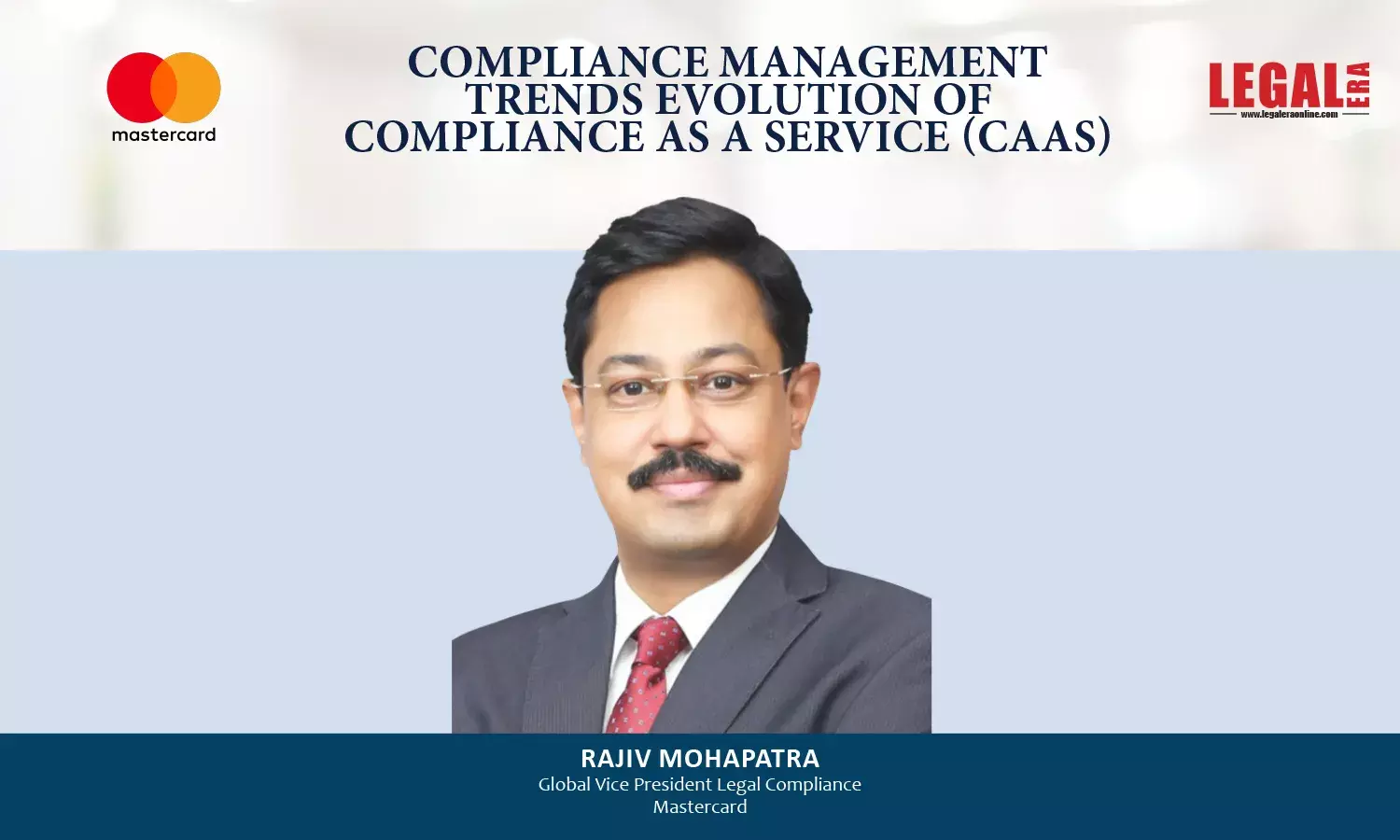ESG: Transforming Compliance Into A Key Profit Driver

ESG: Transforming Compliance Into A Key Profit Driver Companies are increasingly viewing ESG not only as a compliance requirement but as a strategic driver for long-term profitability and competitive advantage In recent years, Environmental, Social, and Governance (ESG) factors have become integral to global business operations. While the “S” (Social) and “G” (Governance) aspects...
ESG: Transforming Compliance Into A Key Profit Driver
Companies are increasingly viewing ESG not only as a compliance requirement but as a strategic driver for long-term profitability and competitive advantage
In recent years, Environmental, Social, and Governance (ESG) factors have become integral to global business operations. While the “S” (Social) and “G” (Governance) aspects often receive more attention, the “E” (Environmental) dimension is just as vital. Companies are increasingly viewing ESG not only as a compliance requirement but as a strategic driver for long-term profitability and competitive advantage. This article explores India’s evolving ESG landscape, highlighting regulatory initiatives and showcasing how businesses are leveraging ESG for sustainable growth.
Regulatory Push Towards ESG Compliance
India’s regulators have been instrumental in advancing the ESG agenda. The journey began in 2007 when the Reserve Bank of India (RBI) provided guidance on corporate social responsibility (CSR) and non-financial reporting. In 2012, the Ministry of Corporate Affairs (MCA) introduced the National Voluntary Guidelines, later adopted by the Securities and Exchange Board of India (SEBI) for Business Responsibility Reporting.
In 2015, the RBI revised priority sector lending targets, and in 2016, the Indian Banks Association released responsible financing guidelines. In 2021, the RBI joined the Network for Greening the Financial System, and the Ministry of Finance established a task force on sustainable finance. A key moment came in 2021 when SEBI’s Business Responsibility and Sustainability Reporting (BRSR) framework was launched; it requires India’s top 1,000 listed companies to disclose ESG performance, aligning with global transparency standards.
By 2022, the RBI published a discussion paper for banks and NBFCs to incorporate ESG into credit risk assessments. The Insurance Regulatory and Development Authority of India (IRDAI) followed suit in 2023 by embedding ESG into insurers’ investment strategies. The RBI’s 2024 draft framework on climate-related financial disclosures and green deposits further bolstered India’s regulatory architecture for sustainable finance.
In India’s rapidly evolving ESG landscape, compliance with regulatory frameworks is essential, but the true value lies in embedding ESG principles into the core of business strategy. Companies that align their purpose with the right reasons for sustainability—investing in education, skill development, and cultural integration—will see a direct correlation with profitability. It's not just about meeting requirements; it's about building a resilient, future-ready organization that thrives by doing what's right.
Moving Beyond Compliance: Education and Skill Development
While regulatory compliance is essential—since you can only save what you can measure-Indian businesses must go beyond mere reporting of ESG principles. To truly embed these values, it’s crucial to prioritize education and skill development within organizations.
i. Education and Awareness: Embedding ESG in organizational culture starts with education. Companies must promote ESG awareness across all levels to inform strategic decision-making. Business schools also play a crucial role by incorporating ESG into their curricula, ensuring future leaders balance sustainability with profitability. As sustainable investing grows, organizations prioritizing ESG are poised to thrive, attracting talent aligned with these values.
ii. Skill Development: Developing internal expertise is essential for successful ESG integration. Building capabilities in environmental assessments and governance frameworks equips companies to navigate evolving regulations and market demands. Companies investing in these skills will be better positioned to lead in sustainability.
ESG as a Business Driver: Turning Compliance into Competitive Advantage
Forward-thinking companies are proving that strong ESG practices can deliver substantial business benefits. These businesses view ESG not as a compliance burden but as a catalyst for growth, enhanced brand loyalty, and profitability.
1. Attracting Premium Investments: Companies with robust ESG frameworks often secure higher valuations and attract premium investors. Tesla, a leader in electric vehicles and renewable energy, exemplifies this trend. Its sustainability initiatives have boosted market valuation and drawn significant ESG-focused investment.
Similarly, Rothy’s, a brand renowned for crafting sandals from recycled plastic, has demonstrated how ESG practices can enhance profitability. Since its 2016 launch, Rothy’s has sold over a million pairs, gained 450,000 new customers in 2020, and achieved unicorn status in 2021. Its inclusive workforce, coupled with sustainability initiatives, has fostered strong customer loyalty and rapid growth.
Unilever’s “Sustainable Living Plan”, which integrates ESG across operations, has also driven higher stock valuations and bolstered investor confidence, further proving ESG’s strategic value.
2. Enhancing Brand Value and Customer Loyalty: Sustainability significantly enhances brand value and loyalty. Patagonia’s environmental activism and fair labour practices, embodied in its “Don’t Buy This Jacket” campaign, have resonated deeply with eco-conscious consumers, strengthening its brand identity and customer base.
Apple is another leader in aligning its business model with sustainability through its “Trade-In Program”. The program allows customers to trade in old devices for credit towards new purchases, reducing e-waste and promoting a circular economy. This initiative not only reduces environmental impact but also fosters customer loyalty by making sustainability part of the purchasing process.
3. Improving Operational Efficiency: ESG-focused companies often discover operational efficiencies that lead to cost savings. Walmart’s energy efficiency and waste reduction initiatives have resulted in substantial savings while boosting its sustainability credentials.
4. Risk Mitigation and Compliance: Strong ESG practices help companies mitigate risks and avoid regulatory penalties. Nestlé’s commitment to sourcing 100% sustainable palm oil reduces reputational and regulatory risks linked to deforestation and human rights’ violations. By proactively addressing these challenges, Nestlé has enhanced its ESG credentials and corporate reputation.
5. Tailoring Products for ESG-Conscious Consumers: Companies designing products that cater to environmentally conscious customers enhance their ESG credibility. IKEA’s use of renewable materials and energy-efficient technologies aligns with its “People & Planet Positive” strategy, while Lush Cosmetics’ ethical sourcing and minimal packaging “naked” products (which do not require packaging), have appealed to environmentally conscious consumers, driving sales growth and enhancing brand appeal.
The growing “right to repair” movement is another example of how brands are empowering consumers to extend product lifespans and reduce waste. Nudie Jeans offers lifetime repairs, while Levi’s runs workshops to help customers repair their products. Even large companies like Apple are embracing this movement by providing access to replacement parts and repair guides.
Conclusion
India’s ESG landscape is evolving rapidly, with regulatory frameworks set by SEBI, RBI, and IRDAI shaping the future of sustainable business practices. While compliance is crucial, companies must go beyond reporting by investing in education, skill development, and cultural integration of ESG principles. Leading companies globally
have shown that robust ESG practices not only enhance market position but also drive profitability through efficiency, risk mitigation, and customer loyalty.
General counsel can play a pivotal role in advancing ESG by advocating for comprehensive strategies and ensuring compliance. As India faces mounting environmental and social challenges, adopting ESG as a core business strategy is essential for sustainable growth. By embracing ESG as a growth opportunity rather than a regulatory burden, businesses can build a more resilient, sustainable, and profitable future for themselves and their stakeholders.
Disclaimer – The views expressed in this article are the personal views of the author and are purely informative in nature.




